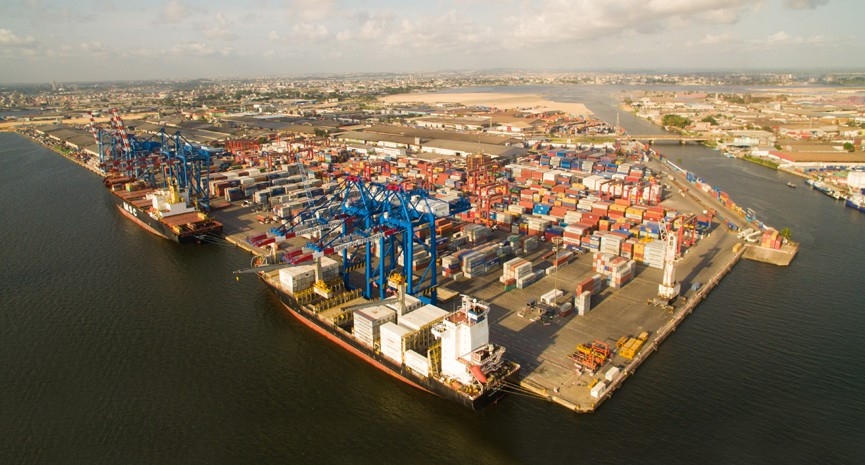FROM MAGAZINE : Port of Abidjan is all set to be a major maritime hub
As the economic lung of Ivory Coast, the port of Abidjan is making huge strides in enhancing its infrastructure. With the canal widening, new port terminal projects and global interest in infusing capital and sharing expertise, the port has almost sealed its position as a regional hub, Nahida Jafferi reports.

As the economic lung of Ivory Coast, the port of Abidjan is making huge strides in enhancing its infrastructure. With the canal widening, new port terminal projects and global interest in infusing capital and sharing expertise, the port has almost sealed its position as a regional hub, Nahida Jafferi reports.
The port of Abidjan holds the leading position on the West African Coast and is the second most important in Africa after the Port of Durban. Located in southern Abidjan, Ivory Coast (also known as Côte d’Ivoire), the port is also a vital supply and export route for landlocked countries to the north.
Most of the country’s trade goes through the port of Abidjan. In 2017, the total throughput at Port of Abidjan increased by 3.8 percent to 22.5 million tonnes from 21.7 million tonnes in 2016. Traffic through the port contributes to 90 percent of the customs revenues of Ivory Coast and 60 percent of the country’s income
Domestic trade surged by 5.5 percent that was mainly driven by the exports of cocoa, manganese, as well as cashew from Ivory Coast. The transit trade (from hinterland countries such as Burkina Faso, Mali, and Niger) increased by 3 percent. Container traffic increased by 4.4 percent on a year on year basis, with 663,601 tons.
The port of Abidjan hosts nearly 50 percent of the Ivorian industries. It is a major point for transshipments to West and Central Africa over the Cote d’Ivoire’s modern rail and road systems. All the ports wharves are connected to the rail network
The port authorities have announced significant infrastructure investments estimated at about $2 billion in the 2018-21 period.
Abidjan Port Authority has entered into a concession agreement with SEA-invest, for building a Mineral Terminal. SEA-invest Group is one of the world’s leading stevedoring group in charge of logistics movement of solid and liquid bulk in the cold supply chain. Nickel ore is to be the new commodity handled in Abidjan Port by SEA-invest Group.
The global attractiveness of the port is positioning Ivory Coast as a commercial hub, while the authorities want to position the port of Abidjan as a regional hub.
The Japanese International Cooperation Agency (JICA) has signed an agreement with the Ivorian government to finance the construction of a new grain terminal at Port of Abidjan. Hien Yacouba Sié, Managing Director of the Abidjan Port will visit Japan to discover the country’s expertise in the port industry.
Recently, South Korean ports and companies had also shown interest to back Abidjan Port in its modernisation process. In addition, London-based ship owner Grimaldi is ready to invest and share its experience for the operation of the Abidjan new RoRo Terminal. It remains the first RoRo partner of Abidjan Port with a ship call every two days.
The ongoing works at the port includes deepening of Vridi Canal pass, extending its depth from 12 to 16 metre to allow larger ships to dock, which shall be completed by August. In addition, the government and Abidjan Port Authority also announced a dry port project located at 600 km from Abidjan for transit cargoes to and from hinterland countries.
Commenting on the port developments, Nils Haupt, Senior Director Corporate Communications, Hapag-Lloyd AG, said: “We expect synergies in port infrastructure to create needed agility to cater to Ivory Coast’s organic growth in the agricultural sector. For Hapag-Lloyd specifically, it will present interesting Ferkessedougou opportunities for future development of the coastline, which we are looking into presently. Abidjan is the cornerstone of Hapag-Lloyd‘s soft commodity exports in West Africa, such as, but not limited to cocoa, cashew nuts and seeds.”
With a market share of 11 percent, Haupt said that Hapag-Llyod has witnessed healthy growth for both imports and exports of 20 percent between 2017 and 2018 (YTD) on routes to Port of Abidjan.
“Business is booming in Africa, with a young population expected to double by 2050. With such growth comes better development and trade. Better e-tools/data capabilities are also expected for Africa. Using our digital platforms, we will provide fast and efficient pricing / bookings towards our African customers. Hapag-Lloyd is committed to developing its African footprint, with our new office in Ghana our first landmark in that goal,” informed Haupt.
To ease the congestion of the port, there are several projects in the pipe-line. Maersk Line, the global container shipping company, has reportedly shown interest in the construction project of a logistic platform on the highway located 28 km from Abidjan to decongest the city and port area.
Moreover, Maersk will partly finance the construction of a second container terminal at Port of Abidjan. Bolloré Transport & Logistics plans to invest $496.3 million in the new terminal to handle bigger container ships. Bolloré Transport & Logistics operates 16 port concessions and 3 railway concessions in Africa. Expected to be operational by 2020, the new terminal aims to boost terminal capacity by around 15 percent from its current roughly 1.2 million TEUs (20-foot equivalent units).


